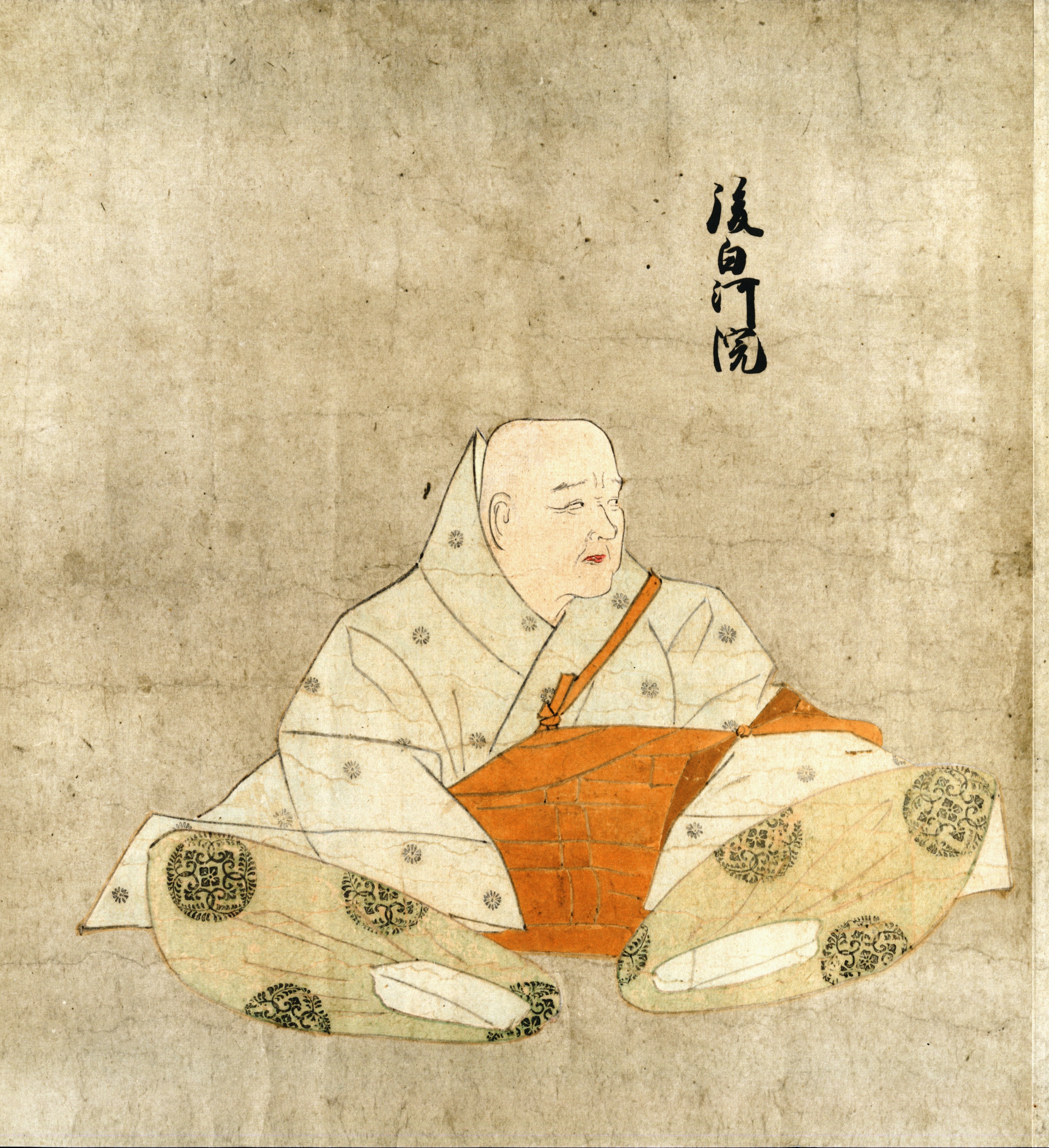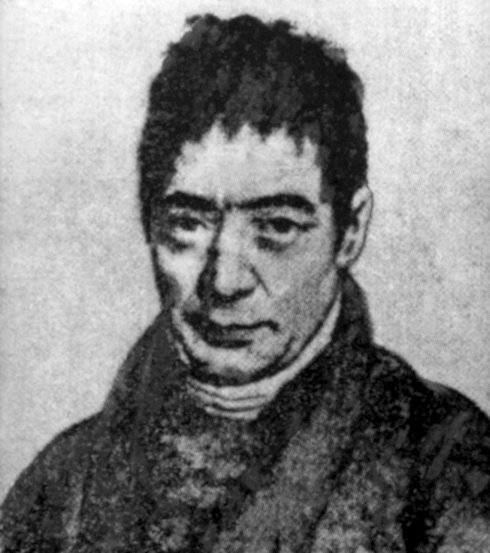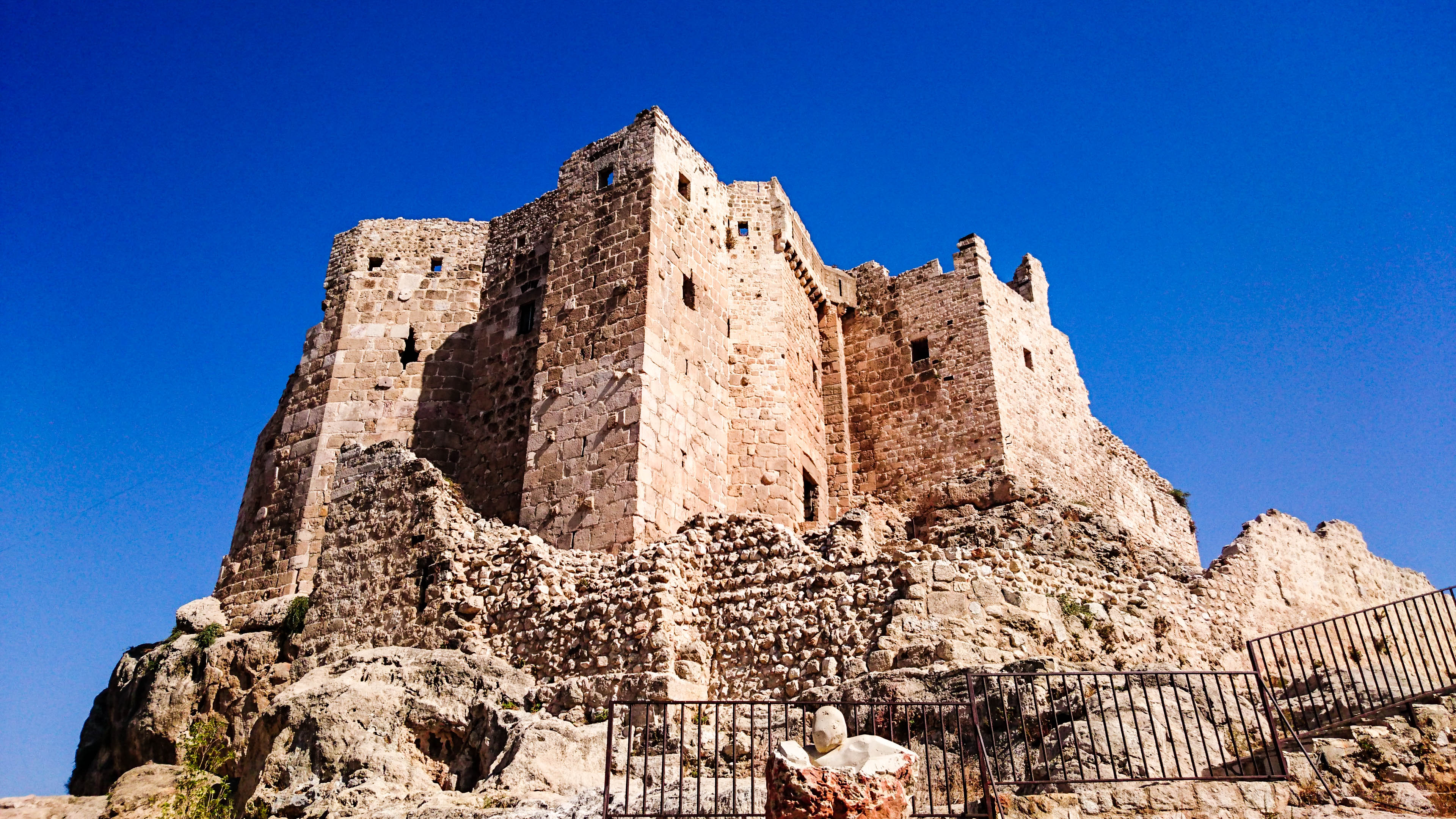|
Ibn Al-Adim
Kamāl al-Dīn Abū ʾl-Ḳāsim ʿUmar ibn Aḥmad ibn Hibat Allāh Ibn al-ʿAdīm (1192–1262; ) was an Arab biographer and historian from Aleppo. He is best known for his work ''Bughyat al-Talab fī Tārīkh Ḥalab'' (; ''Everything Desirable about the History of Aleppo''), a multi-volume collection of biographies of famous men from Aleppo, introduced with a volume on the geography and traditions of the region. It is saved in part in manuscripts in the library of sultan Ahmed III in Topkapi Palace. He also published a chronicle version of the work, ''Zubdat al-Halab fi ta'arikh Halab'' (; ''The Cream of the History of Aleppo''), a copy of which reached the library of Jean-Baptiste Colbert and then the Bibliothèque nationale de France, and selections of which were published with Latin translation by Georg Freytag in 1819. His historical sources are various, some oral and some written, and two of the more famous are Usama ibn Munqidh and Ibn al-Qalanisi (Lewis 1952). Another ... [...More Info...] [...Related Items...] OR: [Wikipedia] [Google] [Baidu] |
Aleppo
Aleppo is a city in Syria, which serves as the capital of the Aleppo Governorate, the most populous Governorates of Syria, governorate of Syria. With an estimated population of 2,098,000 residents it is Syria's largest city by urban area, and was the largest by population until it was surpassed by Damascus, the capital of Syria. Aleppo is also the largest city in Syria's Governorates of Syria, northern governorates and one of the List of largest cities in the Levant region by population, largest cities in the Levant region. Aleppo is one of List of cities by time of continuous habitation#West Asia, the oldest continuously inhabited cities in the world; it may have been inhabited since the sixth millennium BC. Excavations at Tell as-Sawda and Tell al-Ansari, just south of the old city of Aleppo, show that the area was occupied by Amorites by the latter part of the third millennium BC. That is also the time at which Aleppo is first mentioned in cuneiform tablets unearthed in Ebl ... [...More Info...] [...Related Items...] OR: [Wikipedia] [Google] [Baidu] |
Ibn Al-Qalanisi
Abū Yaʿlā Ḥamzah ibn al-Asad ibn al-Qalānisī (; c. 1071 – 18 March 1160) was an Arab politician and chronicler in 12th-century Damascus. Biography Abu Ya'la ('father of Ya'la'), whose surname was al-Qalanisi ('the Hatter'), descended from the Banu Tamim tribe, and was among the well-educated nobility of the city of Damascus.Gibb (1932), p. 8, citing Ibn 'Asakir. He studied literature, theology, and fiqh, law, and served firstly as a secretary in, and later the head of, the chancery of Damascus (the ''Diwan al-Rasa'il''). He served twice as ''ra'is'' of the city, an office equivalent to mayor. "Chronicle of Damascus" His chronicle, the ''Dhail'' or ''Mudhayyal Ta'rikh Dimashq'' ('Continuation of the Chronicle of Damascus') was an extension of the chronicle of Hilal bin al-Muhassin al-Sabi', covering the years 1056 to al-Qalanisi's death in 1160.Gibb (1932), "Introduction", pp. 7-14. This chronicle is one of the few contemporary accounts of the First Crusade and its immedia ... [...More Info...] [...Related Items...] OR: [Wikipedia] [Google] [Baidu] |
13th-century Arab People
The 13th century was the century which lasted from January 1, 1201 (represented by the Roman numerals MCCI) through December 31, 1300 (MCCC) in accordance with the Julian calendar. The Mongol Empire was founded by Genghis Khan, which stretched from Eastern Asia to Eastern Europe. The conquests of Hulagu Khan and other Mongol invasions changed the course of the Muslim world, most notably the Siege of Baghdad (1258) and the destruction of the House of Wisdom. Other Muslim powers such as the Mali Empire and Delhi Sultanate conquered large parts of West Africa and the Indian subcontinent, while Buddhism witnessed a decline through the conquest led by Bakhtiyar Khilji. The earliest Islamic states in Southeast Asia formed during this century, most notably Samudera Pasai. The Kingdoms of Sukhothai and Hanthawaddy would emerge and go on to dominate their surrounding territories. Europe entered the apex of the High Middle Ages, characterized by rapid legal, cultural, and religious ev ... [...More Info...] [...Related Items...] OR: [Wikipedia] [Google] [Baidu] |
1262 Deaths
Year 1262 ( MCCLXII) was a common year starting on Sunday of the Julian calendar. Events By place Mongol Empire * Berke–Hulagu war: Mongol forces under Berke Khan, ruler of the Golden Horde, raid territory in the Caucasus belonging to his cousin Hulagu Khan, ruler of the Ilkhanate. Berke supports the Georgian rebels and allies with the Mamluks. He defeats the Ilkhanate forces on the Terek River, together with the Mamluk army led by Baibars (or Abu al-Futuh), saving Palestine and Arabia from Ilkhanate occupation. Europe * March 8 – Battle of Hausbergen: The bourgeois of Strasbourg defeat a German army of knights (some 5,000 men) under Bishop Walter of Geroldseck. Strasbourg becomes an imperial Free City of the Holy Roman Empire. * May – King Alfonso X ("the Wise") of Castile and León, at a meeting in Jaén, demands military support from Muhammad I, ruler of Granada, and relinquishes the ports of Tarifa and Algeciras to prepare an invasion of ... [...More Info...] [...Related Items...] OR: [Wikipedia] [Google] [Baidu] |
1192 Births
Year 1192 ( MCXCII) was a leap year starting on Wednesday of the Julian calendar, the 1192nd year of the Common Era (CE) and Anno Domini (AD) designations, the 192nd year of the 2nd millennium, the 92nd year of the 12th century, and the 3rd year of the 1190s decade. Events * January 7 – Venus occults Jupiter. * April 28 – Conrad of Montferrat (Conrad I), King of Jerusalem, is assassinated in Tyre, only days after his title to the throne is confirmed by election. The killing is carried out by Hashshashin, later the basis of folk etymology for the English word "assassin." * August 21 – Minamoto no Yoritomo is granted the title of ''shōgun'', thereby officially establishing the first shogunate in the history of Japan. *Margaritus of Brindisi is created the first Count of Malta for capturing Constance, Holy Roman Empress in 1191. *Second Battle of Tarain in India: The Ghurid forces of Mu'izz al-Din are victorious over Prithviraj Chauhan. * The Lugouqiao (later the Marco ... [...More Info...] [...Related Items...] OR: [Wikipedia] [Google] [Baidu] |
Writers From Aleppo
A writer is a person who uses written words in different writing styles, genres and techniques to communicate ideas, to inspire feelings and emotions, or to entertain. Writers may develop different forms of writing such as novels, short stories, monographs, travelogues, plays, screenplays, teleplays, songs, and essays as well as reports, educational material, and news articles that may be of interest to the general public. Writers' works are nowadays published across a wide range of media. Skilled writers who are able to use language to express ideas well, often contribute significantly to the cultural content of a society. The term "writer" is also used elsewhere in the arts and music, such as songwriter or a screenwriter, but also a stand-alone "writer" typically refers to the creation of written language. Some writers work from an oral tradition. Writers can produce material across a number of genres, fictional or non-fictional. Other writers use multiple media such as ... [...More Info...] [...Related Items...] OR: [Wikipedia] [Google] [Baidu] |
Bernard Lewis
Bernard Lewis, (31 May 1916 – 19 May 2018) was a British-American historian specialized in Oriental studies. He was also known as a public intellectual and political commentator. Lewis was the Cleveland E. Dodge Professor Emeritus of Near Eastern Studies at Princeton University. Lewis's expertise was in the history of Islam and the interaction between Islam and the West. Lewis served as a soldier in the British Army in the Royal Armoured Corps and Intelligence Corps during the Second World War before being seconded to the Foreign Office. After the war, he returned to the School of Oriental and African Studies at the University of London and was appointed to the new chair in Near and Middle Eastern history. In 2007, Lewis was called "the West's leading interpreter of the Middle East". Others have said Lewis's approach is essentialist and generalizing to the Muslim world, as well as his tendency to restate hypotheses that were challenged by more recent research. On a ... [...More Info...] [...Related Items...] OR: [Wikipedia] [Google] [Baidu] |
Ayyubid Dynasty
The Ayyubid dynasty (), also known as the Ayyubid Sultanate, was the founding dynasty of the medieval Sultan of Egypt, Sultanate of Egypt established by Saladin in 1171, following his abolition of the Fatimid Caliphate, Fatimid Caliphate of Egypt. A Sunni Muslim of Kurds, Kurdish origin, Saladin had originally served the Zengid dynasty, Zengid ruler Nur al-Din Zengi, Nur al-Din, leading the latter's army against the Crusader invasions of Egypt, Crusaders in Fatimid Egypt, where he was made vizier (Fatimid Caliphate), vizier. Following Nur al-Din's death, Saladin was proclaimed as the first Sultan of Egypt by the Abbasid Caliphate, and rapidly expanded the new sultanate beyond Lower Egypt, Egypt to encompass most of Syria (region), Syria, in addition to Hijaz, Southern Arabia, Yemen, northern Nubia, Tripolitania and Upper Mesopotamia. Saladin's military campaigns set the general borders and sphere of influence of the sultanate of Egypt for the almost 350 years of its existence. Mos ... [...More Info...] [...Related Items...] OR: [Wikipedia] [Google] [Baidu] |
Silvester De Sacy
Antoine Isaac, Baron Silvestre de Sacy (; 21 September 175821 February 1838), was a French nobleman, linguist and orientalist. His son, Ustazade Silvestre de Sacy, became a journalist. Life and works Early life Silvestre de Sacy was born in Paris to a notary named Jacques Abraham Silvestre, a Jansenist. He was born into an ardently Catholic bourgeois family. The surname extension of "de Sacy" was added by the younger son after the name of Louis-Isaac Lemaistre de Sacy, a famous Jansenist cleric who lived in the 17th century. Sacy's father died when he was seven years old, and he was educated on his own by his mother. Philological studies In 1781 he was appointed councillor in the '' cour des monnaies'', and was promoted in 1791 to be a commissary-general in the same department. Having successively studied Semitic languages, he began to make a name as an orientalist, and between 1787 and 1791 deciphered the Pahlavi inscriptions of the Sassanid kings. In 1792 he retired from pu ... [...More Info...] [...Related Items...] OR: [Wikipedia] [Google] [Baidu] |
Order Of Assassins
The Order of Assassins (; ) were a Nizari Isma'ilism, Nizari Isma'ili order that existed between 1090 and 1275 AD, founded by Hasan-i Sabbah, Hasan al-Sabbah. During that time, they lived in the mountains of Persia and the Levant, and held a strict subterfuge policy throughout the Middle East, posing a substantial strategic threat to Fatimid Caliphate, Fatimid, Abbasid, and Seljuk Empire, Seljuk authority, and killing several Christian leaders. Over the course of nearly 200 years, they killed hundreds who were considered enemies of the Nizari Isma'ili state. The modern term assassination is believed to stem from the tactics used by the Assassins. Contemporaneous historians include ibn al-Qalanisi, Ali ibn al-Athir, and Ata-Malik Juvayni. The former two referred to the Assassins as ''batiniyya'', an epithet widely accepted by Isma'ilis themselves. Overview The Assassins were founded by Hassan-i Sabbah. The state was formed in 1090 after the capture of Alamut Castle in the Albo ... [...More Info...] [...Related Items...] OR: [Wikipedia] [Google] [Baidu] |
Usama Ibn Munqidh
Majd ad-Dīn Usāma ibn Murshid ibn ʿAlī ibn Munqidh al-Kināni al-Kalbī (also Usamah, Ousama, etc.; ) (4 July 1095 – 17 November 1188) or Ibn Munqidh was a medieval Arab Muslim poet, author, '' faris'' (knight), and diplomat from the Banu Munqidh dynasty of Shaizar in northern Syria. His life coincided with the rise of several medieval Muslim dynasties, the arrival of the First Crusade, and the establishment of the crusader states. He was the nephew and potential successor of the emir of Shaizar, but was exiled in 1131 and spent the rest of his life serving other leaders. He was a courtier to the Burids, Zengids, and later Ayyubids in Damascus, serving Zengi, Nur ad-Din, and Saladin over a period of almost fifty years. He also served the Fatimid court in Cairo, as well as the Artuqids in Hisn Kayfa. He travelled extensively in Arab lands, visiting Egypt, Syria, Palestine and along the Tigris River, and went on pilgrimage to Mecca. He often meddled in the politics of ... [...More Info...] [...Related Items...] OR: [Wikipedia] [Google] [Baidu] |
Syria
Syria, officially the Syrian Arab Republic, is a country in West Asia located in the Eastern Mediterranean and the Levant. It borders the Mediterranean Sea to the west, Turkey to Syria–Turkey border, the north, Iraq to Iraq–Syria border, the east and southeast, Jordan to Jordan–Syria border, the south, and Israel and Lebanon to Lebanon–Syria border, the southwest. It is a republic under Syrian transitional government, a transitional government and comprises Governorates of Syria, 14 governorates. Damascus is the capital and largest city. With a population of 25 million across an area of , it is the List of countries and dependencies by population, 57th-most populous and List of countries and dependencies by area, 87th-largest country. The name "Syria" historically referred to a Syria (region), wider region. The modern state encompasses the sites of several ancient kingdoms and empires, including the Eblan civilization. Damascus was the seat of the Umayyad Caliphate and ... [...More Info...] [...Related Items...] OR: [Wikipedia] [Google] [Baidu] |







